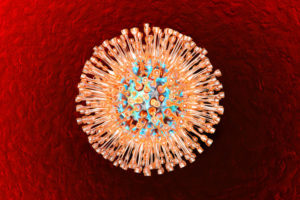The terms “herpes,” “genital herpes,” and “cold sores” are often discussed in relation to one another and can be confusing. Herpes can infect both the mouth or the genitals. It is can be transmitted through skin-to-skin contact with an infected body part or during vaginal, oral, or anal sex. According to the National Institutes of Health(1), herpes can happen to anyone even though most people with the infection don’t even know they have it. This article provides answers to 10 common questions about herpes to help give you some clarity about the infection.
1. What is Herpes?
Herpes is caused by two kinds of herpes simplex viruses. They are HSV 1 or oral herpes and HSV 2 commonly called genital herpes. HSV 1 can pass to the genitals during oral sex. Genital herpes can infect the vagina, penis, or anus during sexual intercourse. It can also transmit to the mouth via oral sex. After the initial infection, the virus can “go to sleep” and show no symptoms (latent) or may cause recurrent outbreaks. Someone with an active breakout or sore is highly contagious but can still transmit the virus when it is latent.
